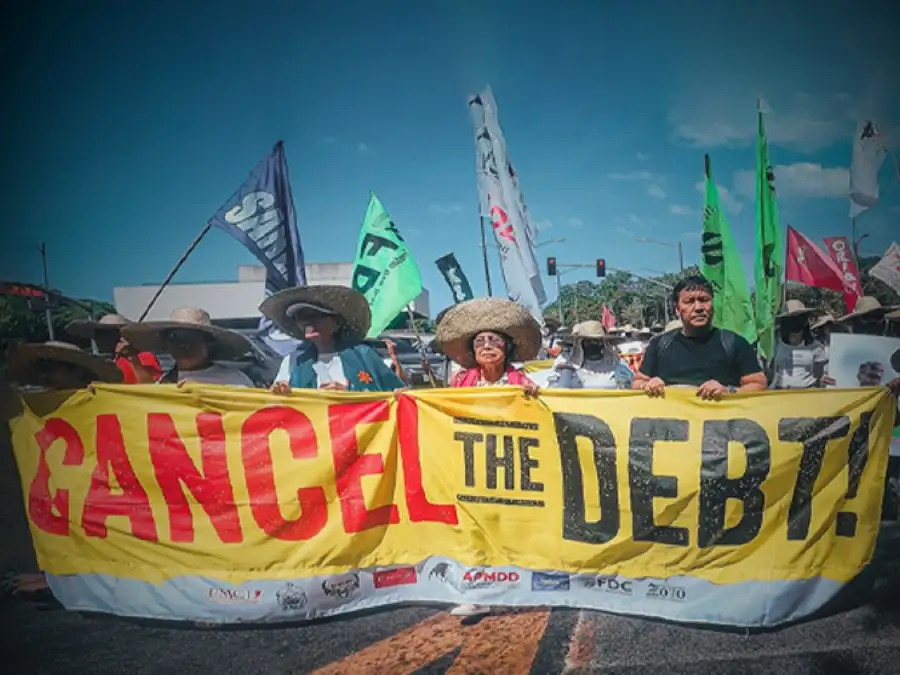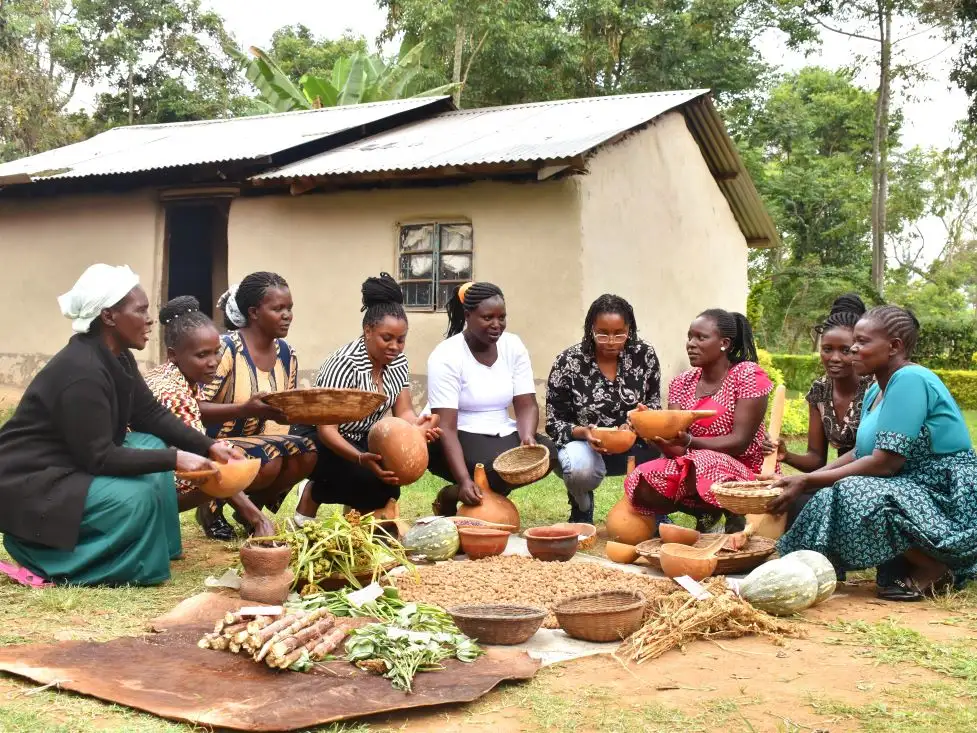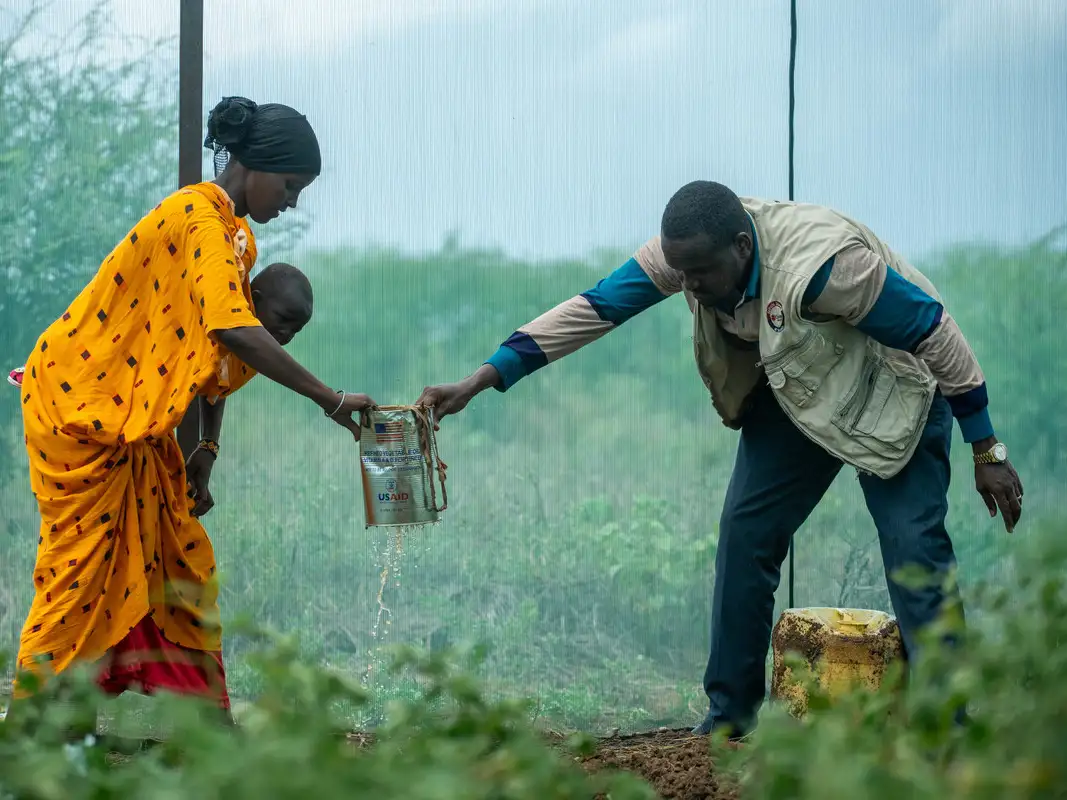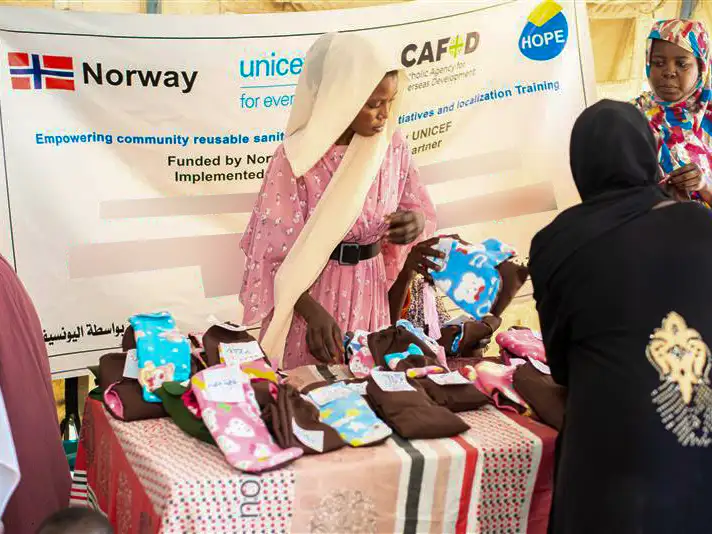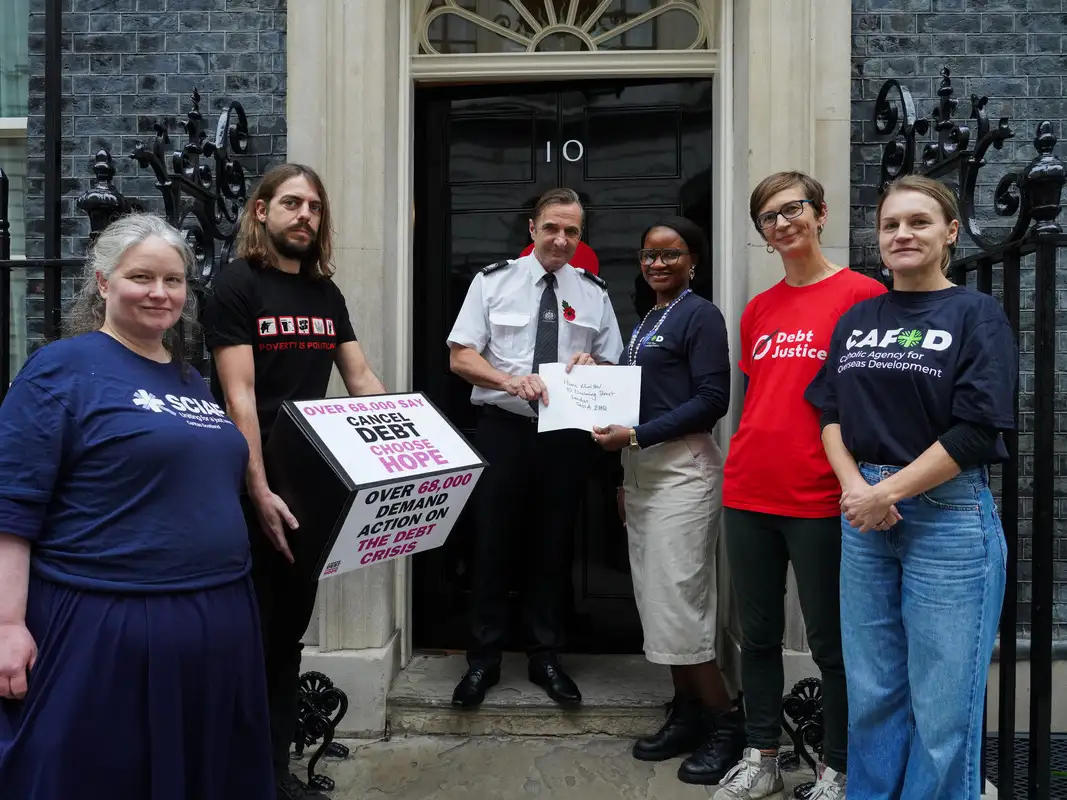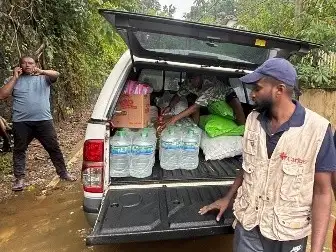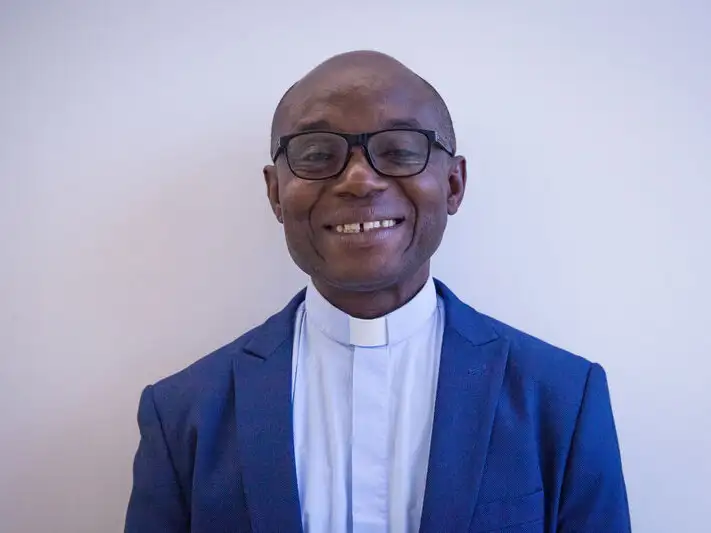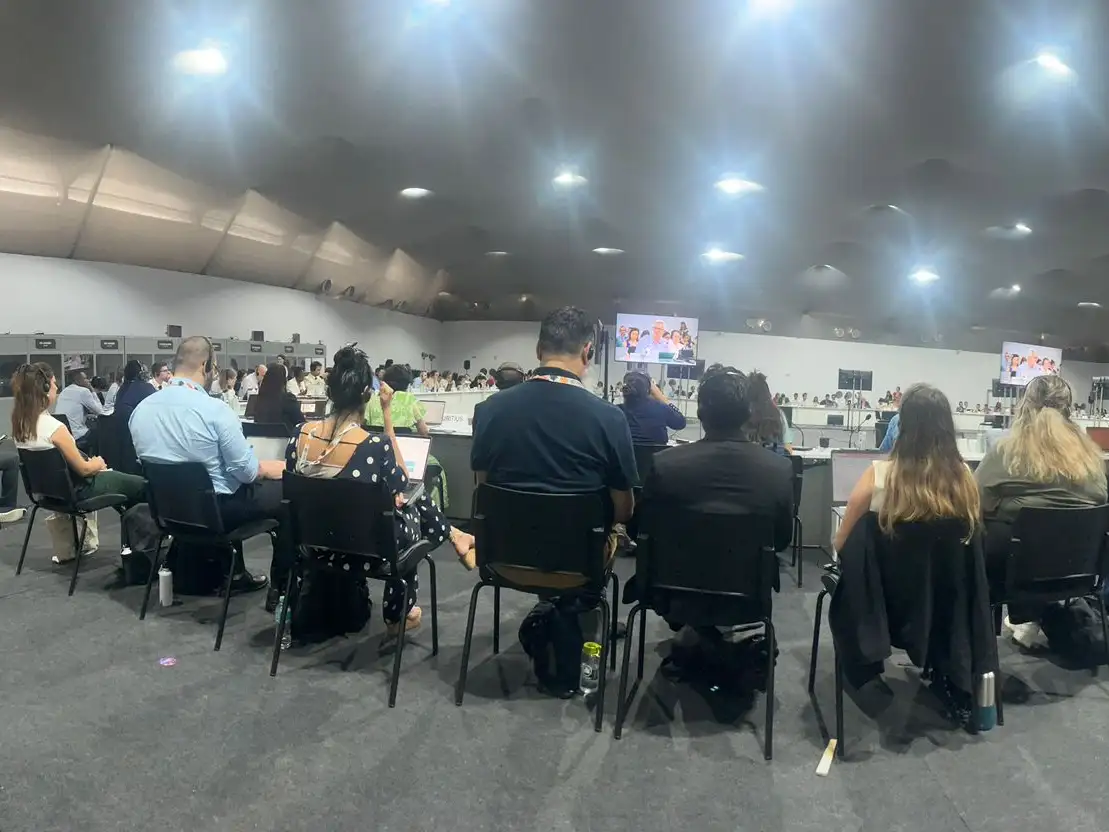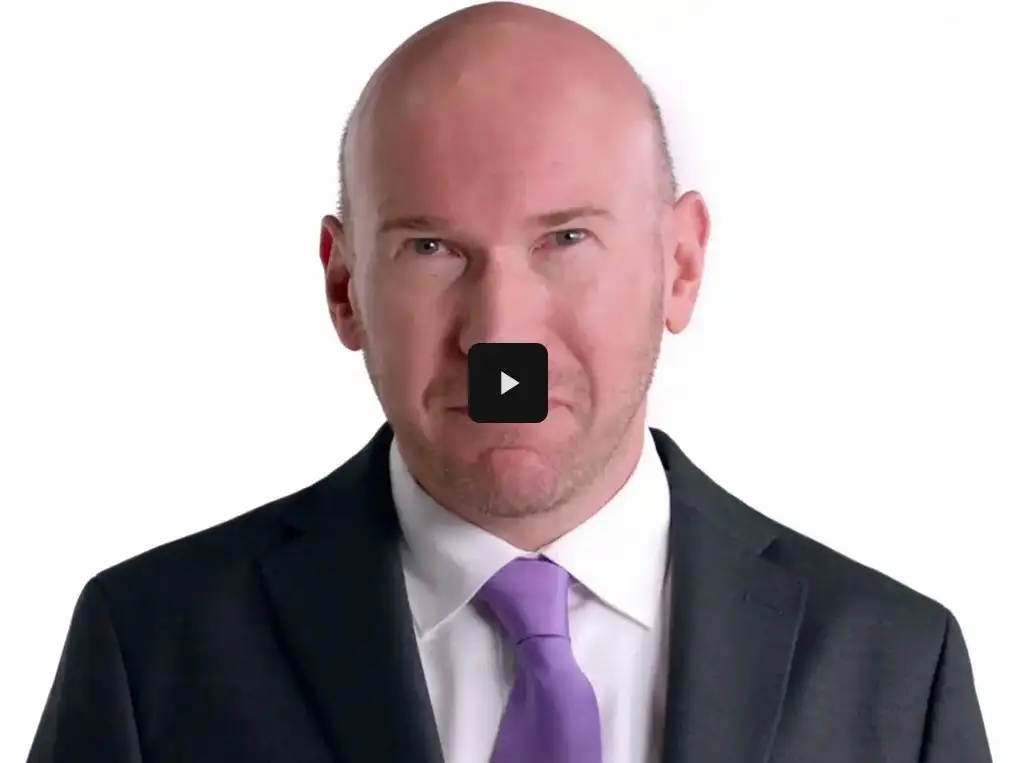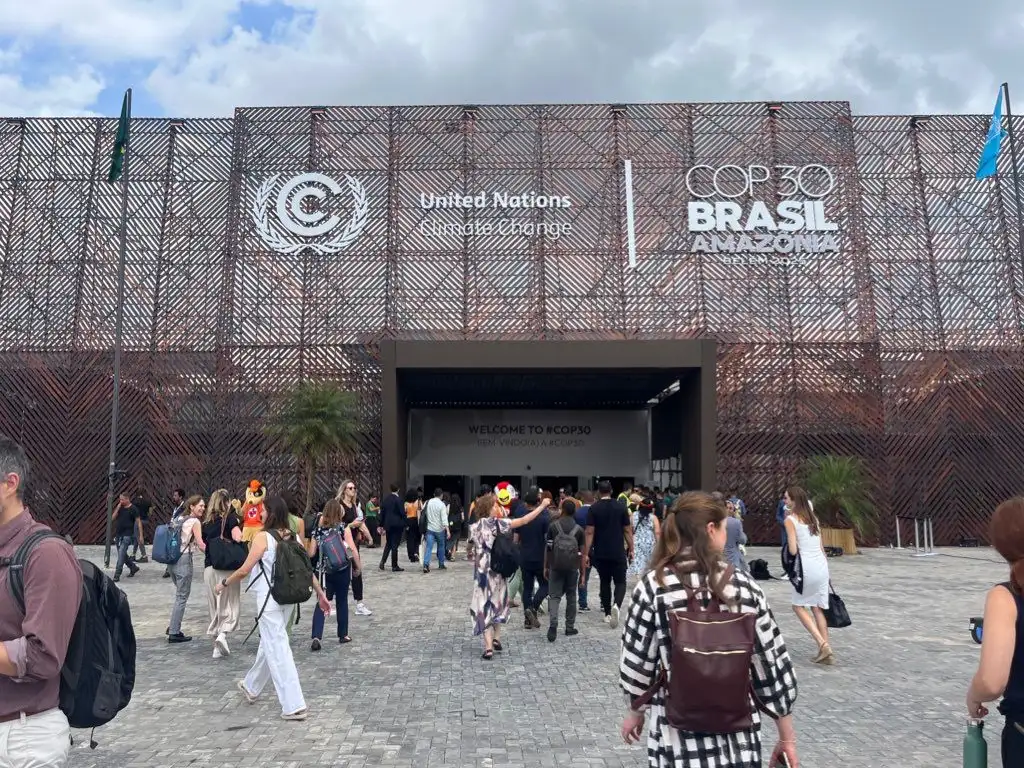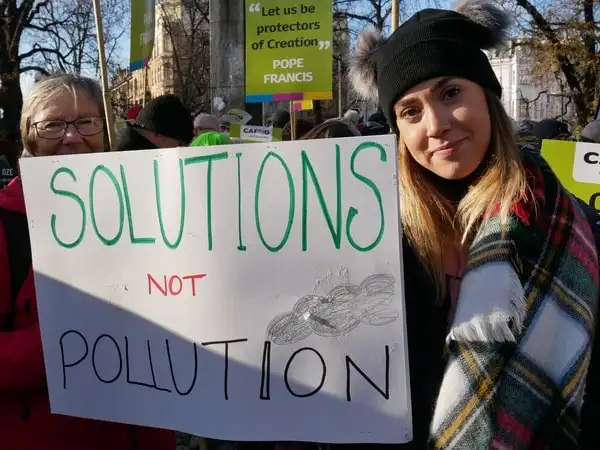

Thousands of CAFOD supporters have campaigned for the government to end support for fossil fuels overseas
It’s official – CAFOD campaigners are award-winning!
Our campaign for the government to end support for fossil fuels overseas won the ‘David & Goliath Award’ at the Shelia McKechnie Foundation’s National Campaigner Awards.
The award was given after the campaign succeeded in calling for the government to change its policy ahead of the COP26 climate talks that the UK hosted in November 2021.
Campaign sets a ‘new global standard for climate action’
CAFOD supporters campaigned over a number of years for the government to end support for fossil fuels overseas, alongside campaigners from Christian Aid, Tearfund and a number of other charities and NGOs.
Research from CAFOD and the Overseas Development Institute showed that the UK government provided billions in financial support for fossil fuels overseas in the last decade.
This is despite fossil fuels driving the dangerous temperature rises which are wreaking havoc for the world’s poorest people.
The government announced that it would end support for fossil fuels overseas ahead of the Climate Ambition Summit in December 2020 which Pope Francis attended with dozens of world leaders.
Concerns remain that financial support might still be given to some gas projects, with CAFOD and ODI research demonstrating that renewable energy is a better option for providing access to energy for communities without safe and reliable electricity supply.
The Sheila McKechnie Foundation said:
“The UK Overseas Fossil Fuel Campaign, led by a small number of campaigners from a diverse range of organisations, ‘used every tool in the box’ to bring taxpayer funding of fossil fuels to an end. The campaign evolved into a well-run coalition effort, which helped set a new global standard for climate action.
“By lobbying MPs, staging noisy protests, publishing media-friendly investigations, and allying with communities affected by UK-funded projects, the campaign turned a highly technical issue into a simple message that resonated across the political spectrum – ‘stop funding fossil fuels overseas’.”
‘Loopholes can’t be used to perpetuate the climate crisis’
Robin Mace-Snaith, who works on climate and energy policy for CAFOD, said:
“It’s amazing to receive recognition for the hard work CAFOD supporters and our local experts have done to push the government to make this vital decision.
“It’s been a long battle and we’re inspired by the persistence of our supporters to get this this long overdue shift over the line.
“Ending support for fossil fuels is fundamental to the credibility of Boris Johnson’s leadership on climate ahead of the G7 and COP26 summits. That’s why the policy has to be upheld and implemented with integrity.
“Loopholes cannot be used to keep funding gas or any other fossil fuel that perpetuates the climate crisis. We’ll be keeping a close eye on the government to ensure this policy actually does what is says on the tin.”
The organisations involved in the overseas fossil fuels campaign are CAFOD, Global Witness, E3G, Tearfund, Christian Aid, Friends of the Earth, Greenpeace, Bretton Woods Project, Oil Change International and Global Justice Now.


